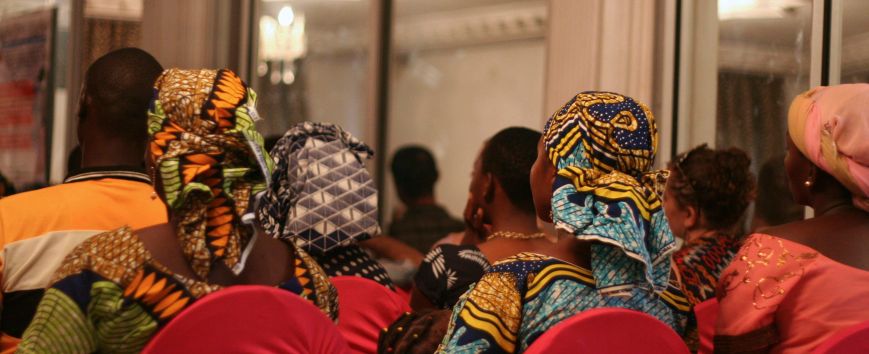A few weeks ago I had the privilege of participating in the National Girls’ Forum. The planning committee worked in Yaounde over the weekend and arrived in Limbe early in order to set up. Despite hectic last-minute changes and much running amok, it was delightful to be back in conference-planning mode and to be able to work on such an important issue. The girls that attended the conference were dynamic and enthusiastic, and, tacky as it may seem, their participation gave me a good deal of hope for the future of girls in Cameroon. Even my Program Manager Amadaou, who was sitting in on the girls’ sessions, mentioned how moved he was by the girls’ participation. The end-of-conference celebration terminated with the girls learning a dance to Beyonce’s “Grown Woman”, and it was both charming and impressive. Not-so-subtle brag: my friend Agnes, who accompanied me to the Forum, absolutely killed it and acquired the nickname Beyonce from her peers as a result.
Back at post, I’m realizing that pretty much all of my projects focus on girls’ empowerment: girls’ clubs, girls’ health classes, a girls’ scholarship program, plus life skills classes and sports teams with girls and boys that promote gender equality. I can’t say I would have originally anticipated this, but I’m very happy with it as it stands.
Until my later years in college, I was a reluctant feminist at best. In chipper upper-middle-class circles stateside, it can be easy to look around and simply accept that gender equality exists. Here in Cameroon, and specifically in the conservative Adamawa region, such is not the case. There is a marked difference in the lives of young boys and young girls in the area. Boys are expected to go to school and receive their high school diploma, while girls (especially Fulbe girls) are often expected to marry after CEM 1 or CEM 2 (roughly the equivalent of 5th/6th Grade). If a family lacks in money, it is the girls that are removed from school first. Outside of classes, boys can work on their homework or play with friends, while girls are tasked with the bulk of household chores. The division of labor in the home is heavily slanted towards women. Throughout town and indeed country-wide, people casually assert that women are the “weaker sex”, are reliant on men for support, and exist in order to have a family and please their husbands.
Daily, I encounter sexist thinking and find the need to stand up for myself as a woman. Explaining why I am here working and have not yet “settled down with a man and had babies” is always a fun one. Being sexually harassed, and/or proposed to, as I walk through town is simply the status quo. Shocking Cameroonian men with the fact that I know how to drive a car (and learned how to before they did!) is a good time. And speaking of driving, explaining to pretty much every taxi driver in the Grand South that no, I don’t want him to drive me to his house so that we can “mix our colors” is swiftly getting old.
Half of the harassment I receive is because I’m a foreigner; the other half is directly related to my gender. So while life will be rather annoying (“derange-y”, as we say) for two years, I simultaneously can see a light at the end of the tunnel, whereas my female Cameroonian friends have lived with the sexism and harassment since birth and will continue to cope with it for the rest of their lives.
My friend Marie is a particular inspiration to me on this front. She teaches at the technical high school, where she is the only female auto-mechanics instructor in the department. Her peers in university, her departmental colleagues, and her current students have been and are almost entirely male, but she holds her own. She’s smart, hilarious, incredibly engaging, and a great teacher: I’d sum her up as being generally badass.
Agnes, who came to Girls’ Forum with me, also fits this mold of being a woman working in what is generally regarded as a man’s sphere. As one of the two female soccer refs in town and one of few in the region, she’s encountered many a douchey male soccer team that sees her and exclaims that she should go home and send another ref, since they don’t want a girl to ref their game. Her retort? She blows her whistle and yells “Get to the line! I’m your ref, I’m in charge, and you’re playing NOW!” I’ll repeat myself and sum her up as generally badass.
I could go on all day about the amazing women here who inspire me, but I have plans to blog post with portraits and will wait for that time to do so. Suffice it to say, girls’ empowerment is an incredibly important issue in Cameroon that I am thrilled to be working on, and the wonderful ladies that I spend my time with constantly inspire me to do just that.


